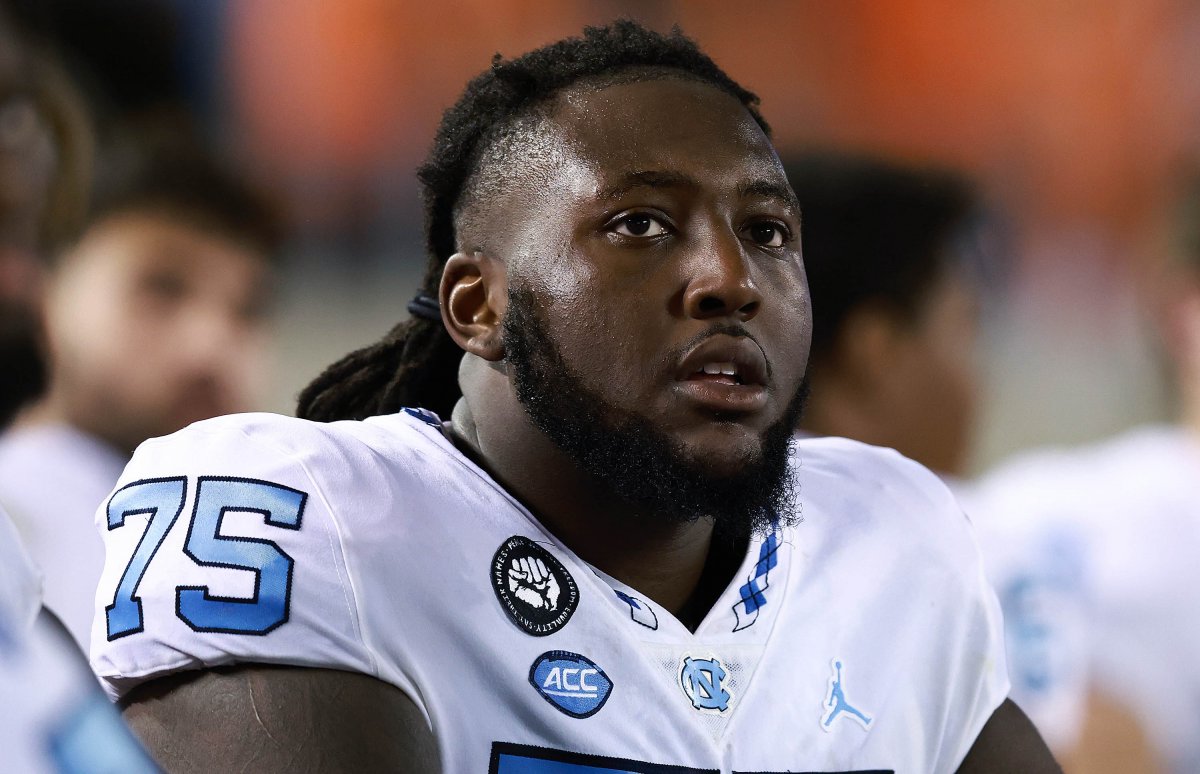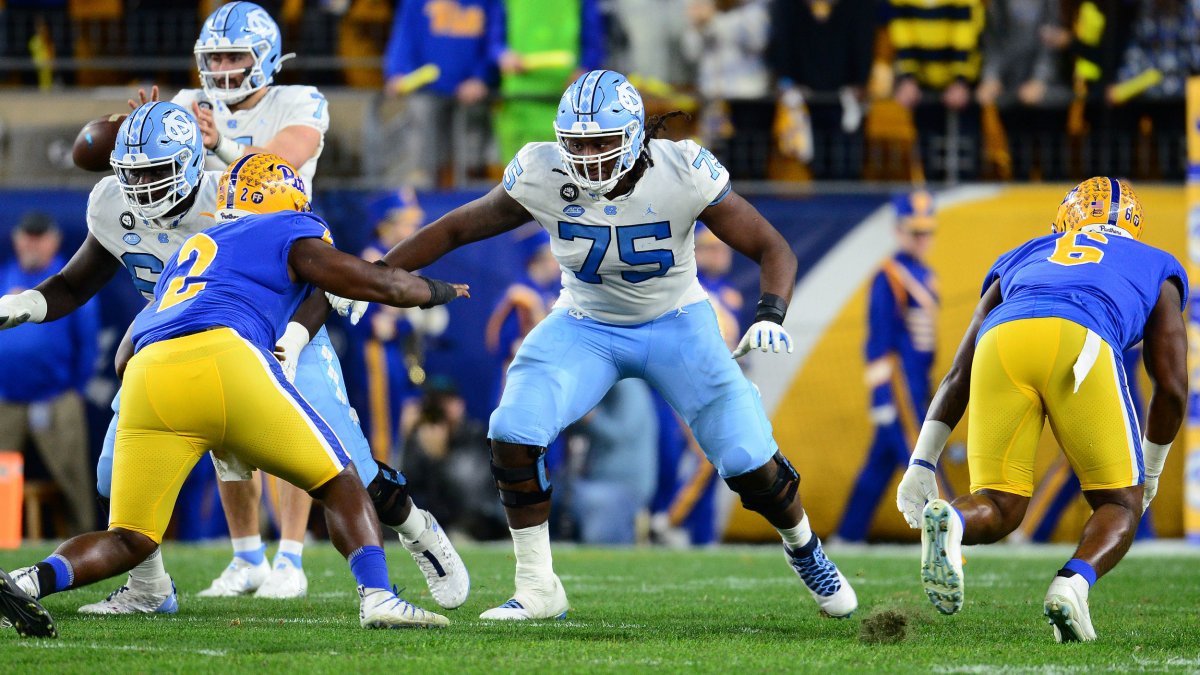My mom has told me that she first noticed I stuttered when I was around 4 years old and put me into speech therapy straight away. But the point where I myself became aware of my stutter was when I was around 9 or 10, in the fourth grade.
At that age, I got bolder and started to talk more, but I also became more self aware and began to see how other people viewed me. Other kids would ask me why I was talking in a different way because they didn't understand stuttering. As soon as that started to happen, I became more introverted.
I was really smart as a kid; when the teacher would ask the whole class a question, I would know the answer about 90 percent of the time. I just never raised my hand because I knew I would stutter. Although I was the biggest child in class, I still had some kids tell me that I talked funny, ask why I didn't talk normally, or laugh at me.
Although I've always wanted to play football, growing up I was just more in love with basketball and soccer. It wasn't until the summer of 2015, before freshman year at high school that it became something I considered. All my friends were telling me that I should try out for the high school football team. They were begging me to do it. So, I went home and asked my mom and dad if I could. They said yes and ever since then I've been on the football field.
I started off playing defensive line, but in my sophomore year at Archer High School in Lawrenceville, Georgia, the offensive line coach there, Coach Brian Lane, pulled me to the offensive line, which is where I've been playing ever since.
Coach Lane is honestly the person who taught me how to play football. I had thought that because I watched and had knowledge about football, I knew what to do on the field. But it's a whole different world actually being out there. He really built me up from nothing. He took the time—and had the patience—to actually teach me what to do, how to do it and how to understand the concepts of play.
In junior year, I started my first game for the high school team. I had a very good season and in January 2018, I got my first college offer. After that, other schools started talking to me and offering me places. It all happened really quickly and in January 2018, I signed to the University of North Carolina. I arrived in June 2018 and I've been here ever since.
Some coaches I talked to at different colleges asked me whether I stuttered on the field. They asked whether, if I saw something and I had to make a call, I would stutter in the heat of the game. Perhaps they were scared that if I were to stutter on the field it might affect or hurt the team. I always tell everyone that if I'm in the heat of the game, I do not stutter at all.
If I see something and then have to tell my teammates, I will not stutter. I just feel like it comes down to being comfortable. I have played in a lot of football games and I have felt everything you can feel, so I am comfortable in the heat of the game.

The older we get, the more of an understanding we have about the world and other people. So the first time my teammates in college heard me talk and heard that I stutter, they did not say a thing. That was a big deal to me because I was so used to people making comments. My teammates actually tell me to slow down because talking faster causes me to stutter more. It's really helped me.
I started speech therapy as soon as I got into elementary school and although I stopped in middle school, I started it again in high school and I've been in speech therapy ever since, including here at college.
My speech therapist will tell me that if I'm stuttering and I'm stuck on a word, I shouldn't try to force it out. I should stop and let the word roll out by itself. If you try and force it out then more tension will build up in your face and that can make you stutter more. If you let the words roll out the tension in your face will begin to ease up.
Developing confidence has really helped me. And I try to keep my stress levels down, because it's important to be calm and not scared to stutter. Most stutterers would probably agree that the times they are nervous and uncomfortable are when they stutter the most. For me, it's important to accept that I am stuttering and that I will talk how I talk. I can't be scared to speak up.
It's crazy, because in my personal life and when I'm out talking to people, I barely stutter. And, If I'm talking to someone I don't know and I do stutter a little, I'm at the age where it's not that big of a deal. I also don't let anyone's reaction affect me. No one in this world is perfect. Everybody has something that they wish they could change.
In the next few weeks I have to choose between coming back for another year of college football or if I want to enter my name into the NFL draft. I graduate in December, so it's a big choice to make. But it has to be made so I will talk to my family and my coaches and we will all come to a decision. I would be happy to play for any NFL team, but my favourite team is the Atlanta Falcons, because I'm from Georgia!
Whenever I go back home to Georgia, I volunteer with children at my church, including those who have learning disabilities. I like to do that to help instil confidence in all the kids, especially those with learning disabilities. I had confidence issues when I was a kid because of my stutter, so I just don't want them to have to go through what I did. In the future, I would like to start a foundation to give back to people who stutter and create a program where kids all across the world who have a stutter can have a safe space.

One thing I want to say to people who stutter and anyone with any kind of disability, is that you can still do whatever you want. Don't let anyone's words or the looks they may give you affect you and your confidence.
As a kid growing up, I did not come into contact with other people who stuttered. My mom would tell me that a lot of famous people stutter, like President Joe Biden. She would tell me that I could still do whatever I wanted to do and I would take that in but it was still hard. All I want is for young kids to see me, someone who is not much older than them, achieving all this and feel that they can also do whatever they want. If you had asked me 10 years ago to say where I'd be now, I would not have said that I'd be a college football player. So, if any kids need someone to look up to, they can look up to me.
Joshua Ezeudu plays offensive line for North Carolina Tar Heels at North Carolina University. You can follow him on Instagram @eazzy75.
All views expressed in this article are the author's own.
As told to Jenny Haward.
Uncommon Knowledge
Newsweek is committed to challenging conventional wisdom and finding connections in the search for common ground.
Newsweek is committed to challenging conventional wisdom and finding connections in the search for common ground.
About the writer
To read how Newsweek uses AI as a newsroom tool, Click here.








